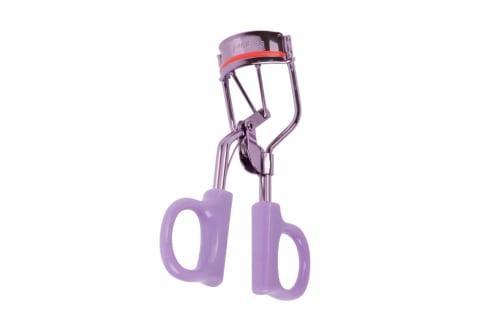In her pale-peach Oscar de la Renta ballgown and platinum hair, Billie Eilish looked like a cross between Marilyn Monroe and Cinderella at Met Gala, as tuxedos attendants lifted her dress’s 15-foot train. But the display of traditional femininity belied a bold power move: As a condition of dressing Eilish, Oscar de la Renta agreed to never work with fur again.
Honestly, that blew me away. At 19, Eilish is one of the most influential artists on the planet. I was amazed to see someone so young use her power for good and take on an such an iconic brand.
Eilish, I’ve come to see, is representative of her generation. There’s a new contract between consumers and brands, and it’s a significant departure from what Gen Xers like me grew up with. From university students demanding climate-friendly dining options to young communications professionals calling on their industry to stop investing in fossil fuels, young people are asserting their values in powerful new ways.
They’re also voting with their wallets. WE Communication’s 2021 Brands in Motion report found that 70% of Gen Z and millennial respondents prefer to purchase products and services from brands that address societal issues that matter to them, compared with 64% of Gen Xers and 58% of baby boomers. Gen Z and millennials are also significantly more likely than their elders to recommend the brands that meet those standards. To stay viable in the decades ahead, brands must listen to these critical stakeholders and address the issues they care about.
The end of “cheap, fast and good”
When I was in business school, the demand on brands was to be cheap, fast and good. We were part of the stuff generation, living by the 1980s maxim, “The one who dies with the most toys wins.” Today Gen Zs and millennials are increasingly valuing quality over quantity and sustainability over convenience.
I see this shift in my own family. I recently offered to buy my son some athletic clothing for his birthday, planning to fill his closet with t-shirts and sweats from a mass-market retailer. He said he’d rather have one very high-quality piece of gear. That’s how all my sons are. They don’t want “cheap” or “fast”; they just want things that are “good.”
A recent report by First Insight found that 73% of Gen Z consumers are willing to pay more for a sustainable product, a higher percentage than any other generation. Gen Zs and millennials are also more interested in purchasing quality second-hand items than their elders. A report by the online consignment store ThredUp finds that 42% of Gen Z and millennial consumers purchased a piece of secondhand apparel in 2020, compared with 32% of Gen Xers and 16% of baby boomers. The report also found that a Gen Zer is 165% more likely than a boomer to consider the resale value of clothing before buying it.
That’s why brands like Patagonia and Lululemon now sell their gently used products online. They’re showing their customers that they share their concern for the environment—while also protecting the brands from encroachment by third-party resellers like ThredUp, Poshmark and Depop.
Redefining success
Several years ago, I was coaching a young member of my team, offering advice on how he could navigate his career to maximize his earning potential. “This is how you make money,” I said.
He gave me a funny look. “But that’s not the most important thing to me,” he said.
When I was young, my life goal was to be a boss-lady—big title, big paycheck, Nancy Reagan power suit. The goal was to make a lot of money—so that you could have the big house, the fancy car, the closet full of expensive clothes.
But that’s not what motivated my young team member. Sure, he wanted to be paid well, but certain quality-of-life issues were a higher priority. He didn’t want to work weekends or put in late nights. He wanted time to pursue outside interests and hang out with friends and family, and he wanted to work for a company that shared those values.
A 2021 Adobe survey of enterprise workers found that 74% of Gen Z and 78% of millennial respondents would switch jobs for better work-life balance, compared to 66% of Gen Xers and 50% of baby boomers. The younger workers also reported having more difficulty finding that balance. Unlike older respondents, the majority of Gen Zs and millennials reported feeling pressured to be reachable at all times of day.
If companies want to keep attracting talent, they must say goodbye to the 24/7 work culture. Young people care about their jobs, but they view their work as just one part of a full life, not their entire identity.
Future-proofing your brand
The world is changing fast, but not overnight. There are still lots of people, young and old, who want to buy cheap stuff with a tap of the phone; consumers who don’t really think about the consequences of their choices.
But take it from a Gen X boss-lady: The brands that want to be around in 10 or 20 years must follow the lead of the younger generations. They will show you how to stay relevant, how to create products and services consumers will buy, and how to stay on the right side of history.
The stakes are high, and meeting the future requires bold, brave action. Just ask anyone under 40.








